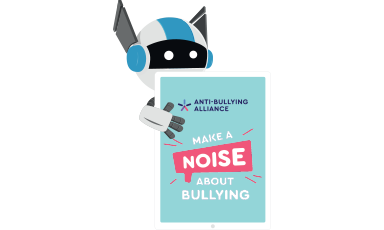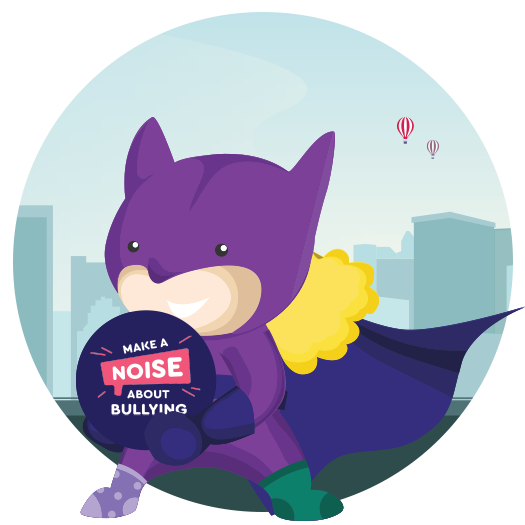
Anti-Bullying Week 2023
Anti-Bullying Week is organised by the Anti-Bullying Alliance, which was established by the NSPCC and the National Children’s Bureau in 2002. The Alliance is a coalition of organisations and individuals that work together to achieve their aim of stopping bullying and creating safer environments in which children and young people can live, grow, play and learn.

Preventing & Responding to Bullying
The Anti-Bullying Alliance believes that bullying in any form is wrong and should not be tolerated, and coordinates Anti-Bullying Week in England, Wales and Northern Ireland every year to highlight ways of preventing and responding to bullying in schools and beyond. Anti-Bullying week started in 2002, and has previously focused on ‘Reaching Out’ to someone if you know they are being bullied; saying ‘One Kind Word’ to brighten the lives of the people around us; and highlighting how ‘Change Starts With Us’ to inform schools, children, parents and carers that stopping bullying is a collective responsibility. Anti-Bullying week has also previously included ‘Stop Speak Support’ days that challenge cyberbullying.
'Make a Noise about Bullying'
This year, Anti-Bullying Week will focus on the theme ‘Make A Noise About Bullying’ to encourage us to speak out against bullying and not be silent about the hurt it causes. Teachers and children chose this theme to empower them to do something positive to counter the harm of bullying. Anti-Bullying week will take place Monday 13th – Friday 17th November 2023 and kick off with Odd Socks Day, when children and adults will wear odd socks to celebrate all that makes us different and unique.

Negative Effects of Bullying
But why do we need Anti-Bullying Week? The Anti-Bullying Alliance says that research shows that one child in every classroom experiences bullying every day and 30% of children have been bullied in the last year – 17% of which were bullied online. Additionally, this year’s Annual Governance Survey by the National Governance Association shows that 52% of governors reported an increase in bullying and cyberbullying at their school or trust, making it the top-reported safeguarding concern followed by neglect and domestic abuse.
As well as causing depression, anxiety and loneliness in childhood, the negative effects of bullying can last well into adulthood. Adults who were bullied as children are more likely to suffer from mental health issues, leave school with no qualifications, be unemployed, earn less money, struggle with obesity, and be in unstable relationships. We therefore need Anti-Bullying Week to help raise awareness of bullying amongst children and young people, help schools to tackle bullying online and face to face, and remind everyone that we can bring an end to bullying!

How can Senso help?
At Senso, we are continually improving our safeguarding capabilities to make our cyberbullying detection even more accurate for schools and their designated safeguarding leads. We know that bullying doesn't always take an obvious form, and this can make it difficult to spot both online and offline. But by using all of the tools available to us, we can be more vigilant to aggressions and other harmful behaviours that leave learners and staff feeling excluded or bullied. This might look like active bullying language on the part of an aggressor, or signs of isolation and other mental health indicators from potential victims of bullying.
Want to learn more about our safeguarding technology?
Guest Blog
Written by Charlotte Kennedy | Safeguarding Language Specialist | Senso.cloud
